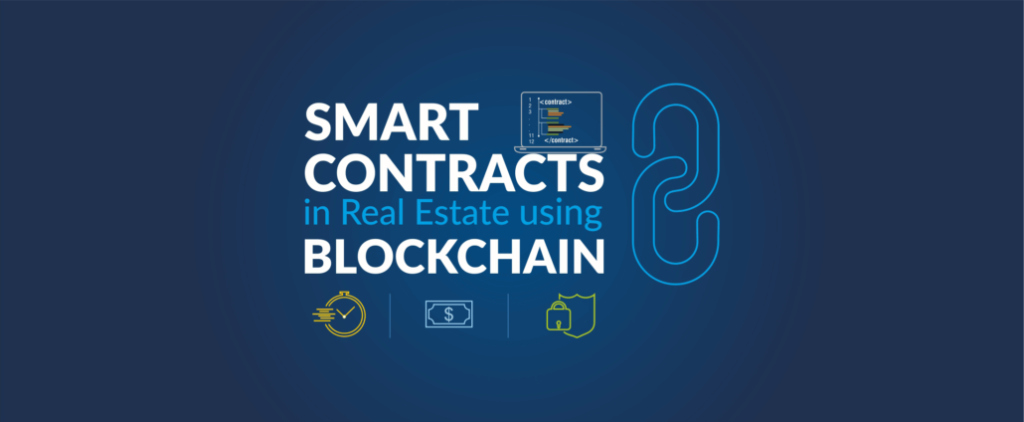Blockchain technology is rapidly transforming industries across the globe, and one of its most promising applications is in real estate through the use of smart contracts. A smart contract is a self-executing contract with the terms of the agreement directly written into lines of code. This innovation is enhancing transparency, reducing fraud, and streamlining the process of buying, selling, and leasing properties. In real estate, blockchain for smart contracts could dramatically improve the efficiency, security, and trustworthiness of transactions.
Traditionally, real estate transactions involve multiple parties—buyers, sellers, brokers, lawyers, notaries, and financial institutions—each of whom may need to verify documents, review contracts, and ensure compliance. This process is often time-consuming, costly, and prone to errors or disputes. Smart contracts on a blockchain offer a decentralized and automated solution that could simplify these steps, creating a more secure and efficient ecosystem.
The key advantage of blockchain for smart contracts is its ability to automate various elements of the transaction process. For example, once predefined conditions in the contract are met (such as the transfer of funds or the approval of a property inspection), the blockchain system will automatically trigger the next step, such as transferring ownership or releasing funds. This automation eliminates the need for intermediaries like notaries or banks to manually confirm transactions, saving time and money.
One of the most significant benefits of using blockchain for real estate transactions is the increased transparency it provides. Blockchain’s immutable ledger ensures that all actions taken during the transaction process—such as property ownership transfers, payment records, or legal verifications—are permanently recorded and cannot be altered. This creates an auditable trail that reduces the risk of fraud and provides all parties with a clear and verifiable record of the transaction. Buyers and sellers alike can have greater confidence that the transaction is legitimate and that all conditions have been met.
Moreover, smart contracts can enhance the security of real estate transactions. Blockchain’s decentralized nature ensures that no single entity has control over the entire ledger, reducing the risk of hacks or data breaches. Additionally, smart contracts are encrypted and require cryptographic keys to execute, making them far more secure than traditional paper contracts or email-based agreements, which can be susceptible to fraud.
Blockchain also has the potential to simplify property title management. Property titles are crucial for establishing ownership, but the process of verifying and transferring titles is often complicated and can involve multiple parties, each with their own database. By storing property titles on the blockchain, real estate professionals can create a digital record that is easily accessible, secure, and resistant to fraud. A blockchain-based title registry would allow real-time updates and eliminate the need for physical document exchanges, speeding up the closing process.
In addition to improving transaction efficiency and security, blockchain for smart contracts also opens up new opportunities for fractional ownership. With blockchain, it becomes easier to divide a property into shares that can be bought or sold by different investors. This fractionalization allows for a more democratized real estate market, where smaller investors can participate in large-scale real estate deals that were previously out of reach. Smart contracts can automatically distribute dividends from rental income or profits from the sale of a property to the shareholders, providing an efficient and transparent system for managing investments.
Despite these benefits, the widespread adoption of blockchain for smart contracts in real estate still faces several hurdles. Legal and regulatory challenges remain, as the technology is still in its early stages and may not be recognized by all jurisdictions. There are also concerns about the integration of blockchain with existing property management systems, as many industries are still using outdated infrastructure. Furthermore, the complexity of implementing blockchain solutions in real estate may require a shift in how professionals think about property transactions and contracts, requiring time and investment to adopt.
In conclusion, blockchain for smart contracts has the potential to revolutionize the real estate industry by enhancing transparency, security, and efficiency in property transactions. As the technology matures and becomes more widely adopted, it is likely that real estate professionals, buyers, and sellers will increasingly rely on blockchain-based systems to facilitate smoother and more secure transactions. While challenges remain, the future of real estate transactions looks promising with the advent of blockchain-powered smart contracts.
From Our Editorial Team
Our Editorial team comprises of over 15 highly motivated bunch of individuals, who work tirelessly to get the most sought after curated content for our subscribers.




